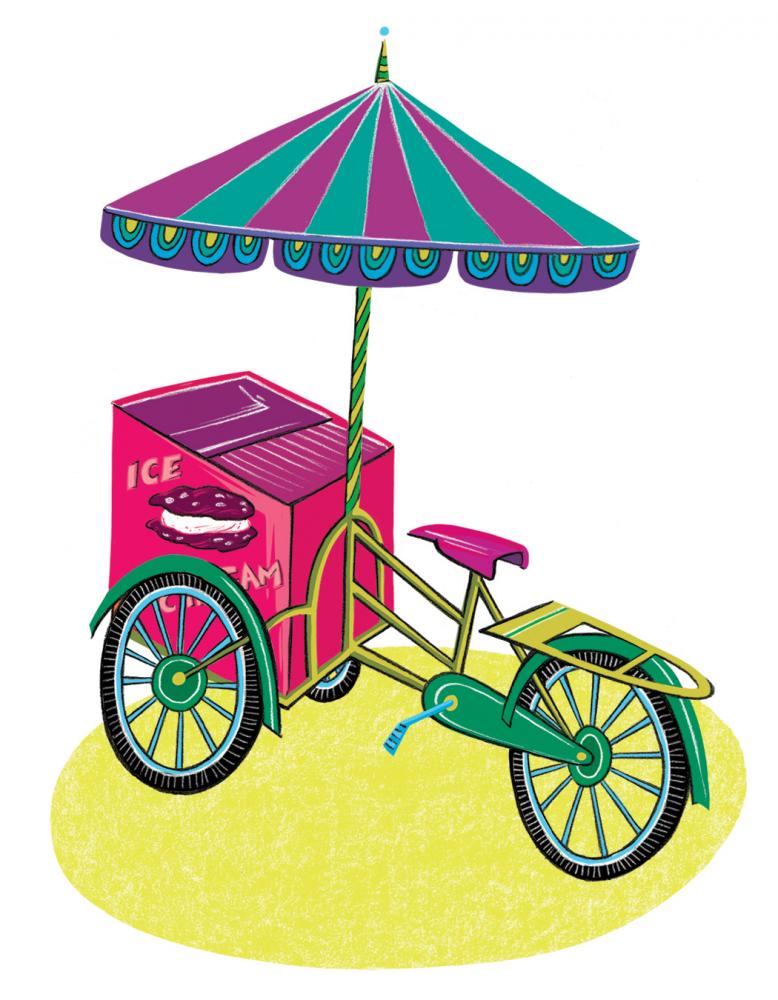The Icicle Tricycle Ice Cream Bikes are slick, pedal-powered way of bringing ice cream directly to the people. Assembled in Portland, Oregon, these custom trikes not only look sharp, but also have seven speeds, reinforced folding frames, and – most importantly – insulated compartments in their fronts that will keep your ice cream perfectly chilled and ready to serve at a moment’s notice.
The tricycles are things of beauty and, in early 2013, Mike and Iva Stone decided they wanted one. The husband-and-wife duo had recently opened a gourmet cookie store on 124th Street called Cookie Love, following five years of selling out of a booth at the downtown farmers’ market. By turning their cookies into ice-cream sandwiches, the Stones figured they could use the tricycle to set up shop at pedestrian-heavy locations all around the city. And with summer fast approaching, they knew the time to act was now. But there was a problem.
“Honestly, we put the financials together,” Mike says. It was going to cost $2,500 to buy the bike, and another $500 to have it professionally decorated. They’d also have to spend time – and gas money – driving down to Portland, picking the unit up, and bringing it back home. All told, what they’d dubbed the Cookie Love Machine was going to cost the Stones around $5,000. “And we didn’t have it.”
So they turned to what more and more small-business owners have, in lieu of an old-fashioned bank loan – crowdfunding. The Stones set up a page to raise money for the tricycle on Indiegogo, created several tiers of perks (recognizing various levels of donations) and then sat back, hoping that their ice-cream-loving community would rally around them. Instead, what they learned was the stark and all-too-common reality behind this flashy method of fundraising.
After 30 days, the Stones had raised just under $2,000 – less than half of their goal. Unlike some other crowdfunding sites, like Kickstarter, Indiegogo allows users to keep the raised funds even if they don’t hit their overall targets. But it penalizes you by taking a larger cut of the total: In the Stones’ case, a whopping nine per cent. “We didn’t have that calculated in,” Mike admits. Then there’s the additional 2.9 per cent, plus 30 cents, that PayPal takes for handling each individual transaction.
